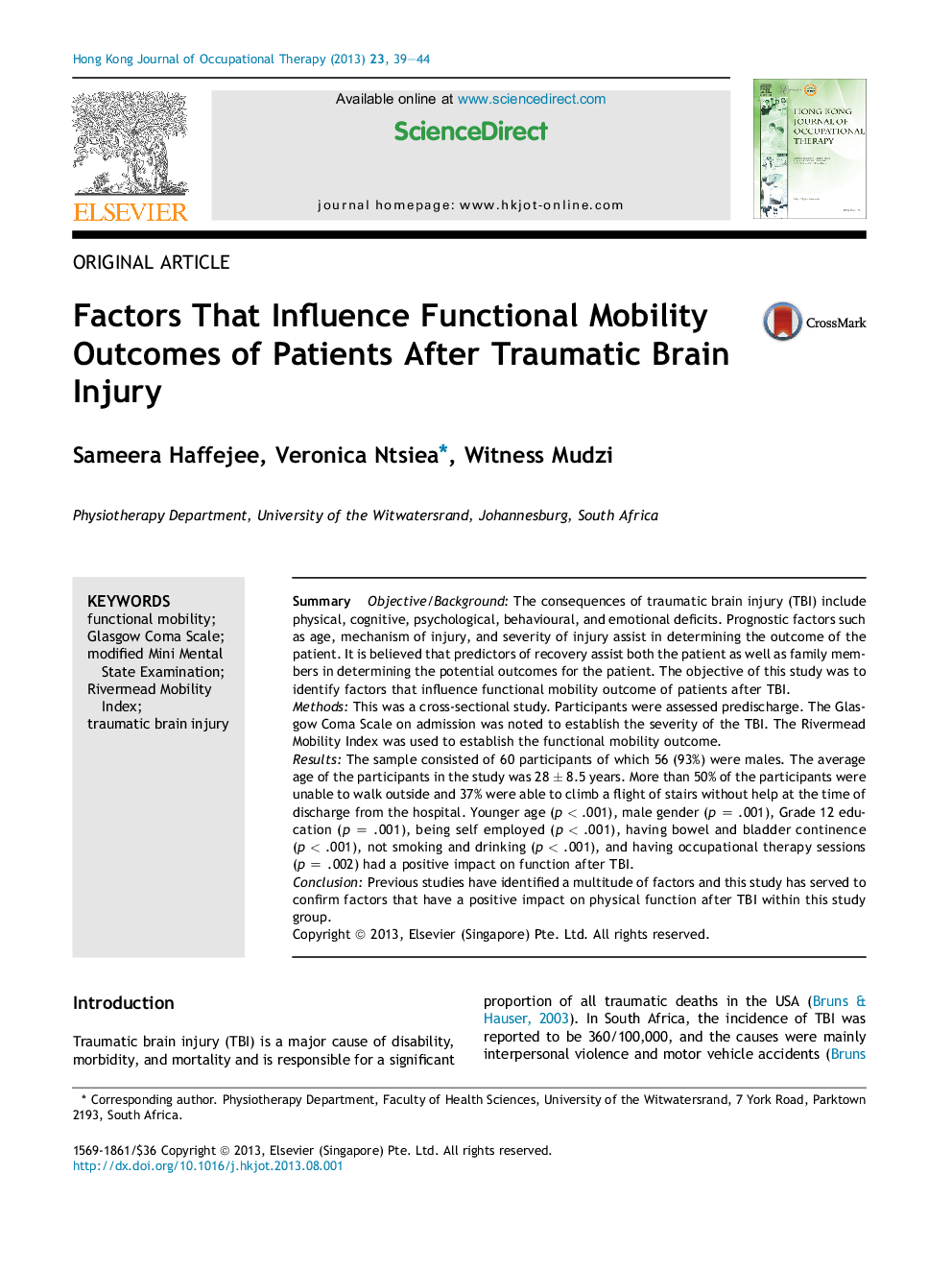| Article ID | Journal | Published Year | Pages | File Type |
|---|---|---|---|---|
| 2697570 | Hong Kong Journal of Occupational Therapy | 2013 | 6 Pages |
SummaryObjective/BackgroundThe consequences of traumatic brain injury (TBI) include physical, cognitive, psychological, behavioural, and emotional deficits. Prognostic factors such as age, mechanism of injury, and severity of injury assist in determining the outcome of the patient. It is believed that predictors of recovery assist both the patient as well as family members in determining the potential outcomes for the patient. The objective of this study was to identify factors that influence functional mobility outcome of patients after TBI.MethodsThis was a cross-sectional study. Participants were assessed predischarge. The Glasgow Coma Scale on admission was noted to establish the severity of the TBI. The Rivermead Mobility Index was used to establish the functional mobility outcome.ResultsThe sample consisted of 60 participants of which 56 (93%) were males. The average age of the participants in the study was 28 ± 8.5 years. More than 50% of the participants were unable to walk outside and 37% were able to climb a flight of stairs without help at the time of discharge from the hospital. Younger age (p < .001), male gender (p = .001), Grade 12 education (p = .001), being self employed (p < .001), having bowel and bladder continence (p < .001), not smoking and drinking (p < .001), and having occupational therapy sessions (p = .002) had a positive impact on function after TBI.ConclusionPrevious studies have identified a multitude of factors and this study has served to confirm factors that have a positive impact on physical function after TBI within this study group.
